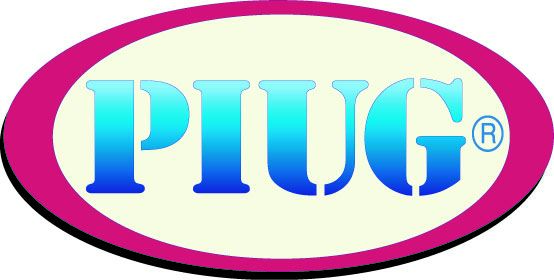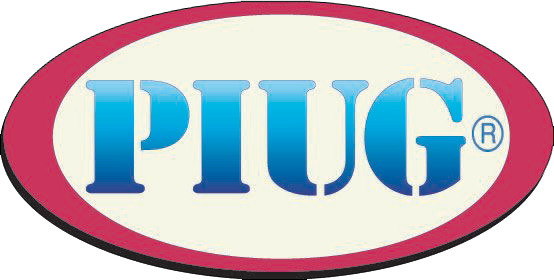PIUG 2014 Biotechnology Conference
Staying on the Cutting Edge of Biotechnology Patent Searching
Monday, February 24, through Wednesday, February 26, 2014
Genzyme Center
500 Kendall Street
Cambridge, MA 02142
+1 (617) 252-7500
Workshops
Monday, February 24, 2014
All workshops at Boston Marriott Cambridge, 50 Broadway, Cambridge
Wednesday, February 26, 2014
- All workshops at 675 W. Kendall Street, Washington Room, Cambridge.
- Please note: Attendees must sign-in with Security at the main Genzyme Center 500 Kendall Street, then be escorted across the street to the workshop room.
Thursday - Friday, February 27-28, 2014
- Location: 675 W. Kendall Street, Washington Room, Cambridge.
- Please note: Attendees must sign-in with Security at the main Genzyme Center 500 Kendall Street, then be escorted across the street to the workshop room.
| Day |
Time (ET) |
PIUG "Patent Information Fundamentals" Course |
Instructor(s)
|
Registration |
| Thu, 2/27 |
7:30 am |
Breakfast
|
|
Required + Fee |
| |
8:00 am |
Workshop |
Anthony Arleth
Dominic Demarco
Rachel Pilloff
Edlyn Simmons |
|
| |
|
Adjourn for the Day |
|
|
| Fri, 2/28 |
7:30 am |
Breakfast |
|
|
| |
8:00 am |
Workshop |
Anthony Arleth
Dominic Demarco
Kimberly Miller
Rachel Pilloff
Edlyn Simmons
Tony Trippe |
|
| |
3:45 pm |
Adjourn for the Day |
|
|
Please note that this information is subject to change.
Workshops – Detailed Descriptions
Linguamatics I2E: Advancing Biotechnology Patent Search with Agile Text Mining 
This workshop will discuss how text mining techniques can aid patent searching. We will demonstrate some recent advances in extraction of information from tables, and discuss the use of machine translated Asian patents vs. mining the original documents.
The workshop will demonstrate the extensive range of search filters provided by agile text mining. Terminologies can look for documents that mention a member of a class of items (by the concept name or by its synonyms), such as any immunosuppressant drug, kinase or skin cancer, or any gene from a list of 500. Regular expressions can look for specific forms of words, such as the syntax used to describe a microRNA. Chemical similarity or substructure search can find newly defined chemicals.
Linguistic constructions can accurately find different ways people might express a concept, or filter out expressions of less interest, such as items appearing together in a list.
In addition to the wide range of filters that can capture the search intent, text mining can be used to summarize the data within a set of patents. This can be used to extract facts or relationships, ascertain trends, or to develop search strategies and new terminologies.
Participants will be encouraged to submit queries that they find time consuming or impossible with standard search engines two weeks before the PIUG meeting for discussion at the workshop.
GenomeQuest: Tips, Tricks, & Use Cases and Future Capabilities 
- Introduction of Unique Family Sequences (UFS) in GenomeQuest
- (UFS is a new grouping mechanism that helps understand identical sequences within families.)
- Review of the advance filtering option featuring multiple and/or logic
- Top questions for Denis (customers may submit their questions)
Search for Sequences on STN – Going Beyond a Sequence Search 
There have been many STN workshops over the years that have explained in great detail the BLAST and Sequence Code Match search algorithms used in sequence searching on STN. This workshop focuses additional techniques for searching sequences.
- Learn about:
- The Comment field and Derwent classification codes in DCR
- Structure searches for small sequences in DCR and CAS REGISTRYSM
- Peptide searches in MARPAT®
- STN Express® R-group Analysis Tool for analyzing substituents from a REGISTRY structure search for peptides
This workshop is geared to all levels of sequence searchers, from beginner to experienced searchers.
Information and Informatics in Living Systems: an Introduction to Molecular and Genomic Biology 
This three-hour workshop will introduce participants to the major information carrying molecules of living systems: DNA, RNA and proteins. Participants will learn how the synthesis and creation of these complex molecules supports the storage, replication, and transmission of information within the living cell. Participants will also be introduced to important genetic and genomic information repositories including Gene, RefSeq (both NCBI databases), the UCSC Genome Browser and the EMBL’s Ensembl genome browser.
Biography: Paul Bain holds a Ph.D. in Cellular and Molecular Biology from the University of Michigan and an M.S. in Information and Library Science from Simmons College. Since 2004, he has served as a reference librarian with the Countway Library of Medicine where he provides bibliographic and bioinformatics support for members of the Harvard medical community.
Use of Cooperative Patent Classification (CPC) by an EPO and USPTO examiner 
In January 2013, The USPTO launched the Cooperative Patent Classification (CPC) system in cooperation with the EPO. CPC is a common, internationally compatible classification system for technical documents used in the patent examination and granting process. The back-file of about 8 million U.S. patent documents and newly published documents now have CPC symbols. The CPC database jointly maintained by the USPTO and EPO contains more than 50 million documents, thereby providing a more comprehensive search of prior art and increased opportunities for work-sharing among offices.
During the year since CPC was launched, all new Pre-grant publications now carry CPC classification data and over 8000 examiners and supervisors have been trained on classifying and searching in CPC. The USPTO continues to partner closely with the EPO on the implementation, including cooperation on CPC definitions, revision projects, quality assurance, and IT. The USPTO is still on target to “retire” the United States Classification system (USPC) at the end of 2014.
This presentation will cover the progress of transition at the USPTO & EPO and also include practical information on CPC classification practice in the pharmaceutical and biotech fields.
Biography: Dr. Nathalie Loubradou-Bourges Biotechnology Patent Examiner for 14 years. Classifier in the field of “animal cells” in Biotechnology (CPC C12N5/00 – C12N5/166). Coach and Quality Nominee for classification in EPO, same field. Training of USPTO examiners for CPC, same field.
Biography: Jerry Lorengo is currently a Director at the USPTO in Technology Center 1600 which focuses on patent matters relating to organic chemistry and biotechnology. Previously, Jerry served as Co-Program Coordinator for CPC at the USPTO where he shared responsibility for the implementation of CPC within the USPTO. Jerry joined the USPTO as an Examiner in 1996 and has served since 2005 as a Supervisory Patent Examiner in the Chemical and Materials Engineering Technology Center. Jerry holds degrees in Chemical and Metallurgical Engineering from the University of Nevada's Mackay School of Mines as well as a law degree from Catholic University's Columbus School of Law.
PIUG "Patent Information Fundamentals" Course 
All registrations include breakfast, lunch and both AM and PM breaks.
| Registrant Type |
Early Bird
Through Jan 17 |
Standard
Jan 18 - Feb 14 |
Onsite
After Feb 14 |
| Member |
$1395 |
$1595 |
$1695 |
| Non-member |
$1495 |
$1695 |
$1795 |
Use Online registration to use your credit card. To pay by check via postal mail, use the hardcopy registration form.
Note that registration is completely independent of PIUG Biotech Conference attendance. Everyone is invited to attend the "Patent Information Fundamentals" course whether or not they are PIUG members or registrants for the PIUG Biotech Conference.
Patent Information Fundamentals was formerly offered by PERI, the Pharmaceutical Education and Research Institute. The course has been transferred to PIUG and will be held in Canbridge, MA, February 27-28, 2014, immediately after the PIUG Biotech Conference. This course is an expanded version of the well known PERI Patent Information Course, which has been offered since 1989. It provides an overview of the patenting process, sources of patent information and the various means of answering patent information requests pertaining to chemical, electrical and mechanical technologies. The basics of U.S. and foreign patent laws, patent search techniques and resources, and the importance of exclusivity and patent term extension will be discussed.
Who Should Attend
This course is ideal for information and library staff, especially those new to patent searching, who need a comprehensive overview of the patenting process and sources of patent information. Individuals working in R & D who need a better understanding of patents and the patenting process are also encouraged to attend.
Presenters
- Edlyn Simmons, Simmons Patent Information Service, LLC
- Rachel Pilloff, Foley & Lardner LLC
- Anthony Arleth, Pennside Partners Limited
- Dominic Demarco, DeMarco IP
- Kimberly Miller, Novartis
- Tony Trippe, Patinformatics, LLC
Educational Objectives
Upon completion of this course, participants should be able to:
- Explain how an invention is patented worldwide
- Compare and contrast patent laws in different countries
- Differentiate between what is disclosed and what is claimed in a patent
- Identify some of the various sources of patent information available
- Understand patent classification code systems
- Analyze the requirements for patent searches and utilize the principles for constructing a comprehensive search strategy for performing different types of patent searches
Key Topics
- What is a Patent?
- United States and foreign patent law
- Patent term variations and how to find them
- How to read patents
- Patent information resources
- Patent searching techniques, including patent classification and the upcoming Cooperative Patent Classification
- How to find the patent status of a product
- Reporting search results
- Technical intelligence and patent mapping
- Patent information from Asian countries
- Chemical structure and biotechnology patent searching
- Mechanical and electrical patent searching
Additional Information for Workshop Hosts
Organizations hosting workshops must complete the PDF document for the 2014 Biotech Workshop Agreement.
- Workshop requests received from Sponsors after the previously established deadline, Wednesday, November 20, 2013, are considered, based only on remaining available time and space.
- The workshop request form should be completed and submitted in PDF format to elyse.turner @ verizon.net.
- Workshop hosts must also be sponsors of the meeting.
Additional information is available under Sponsorships.
 Search
Search Community
Community Job Board
Job Board
